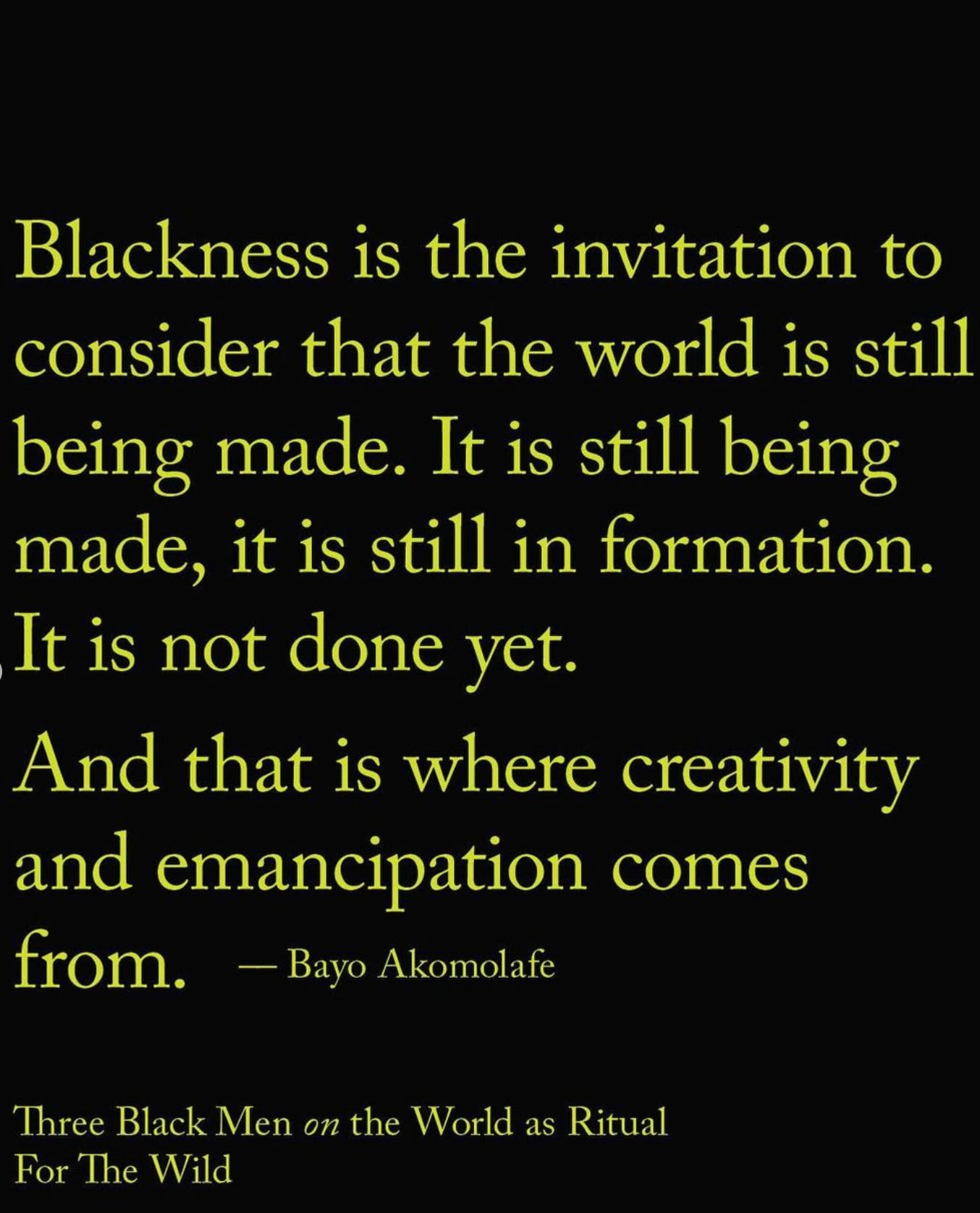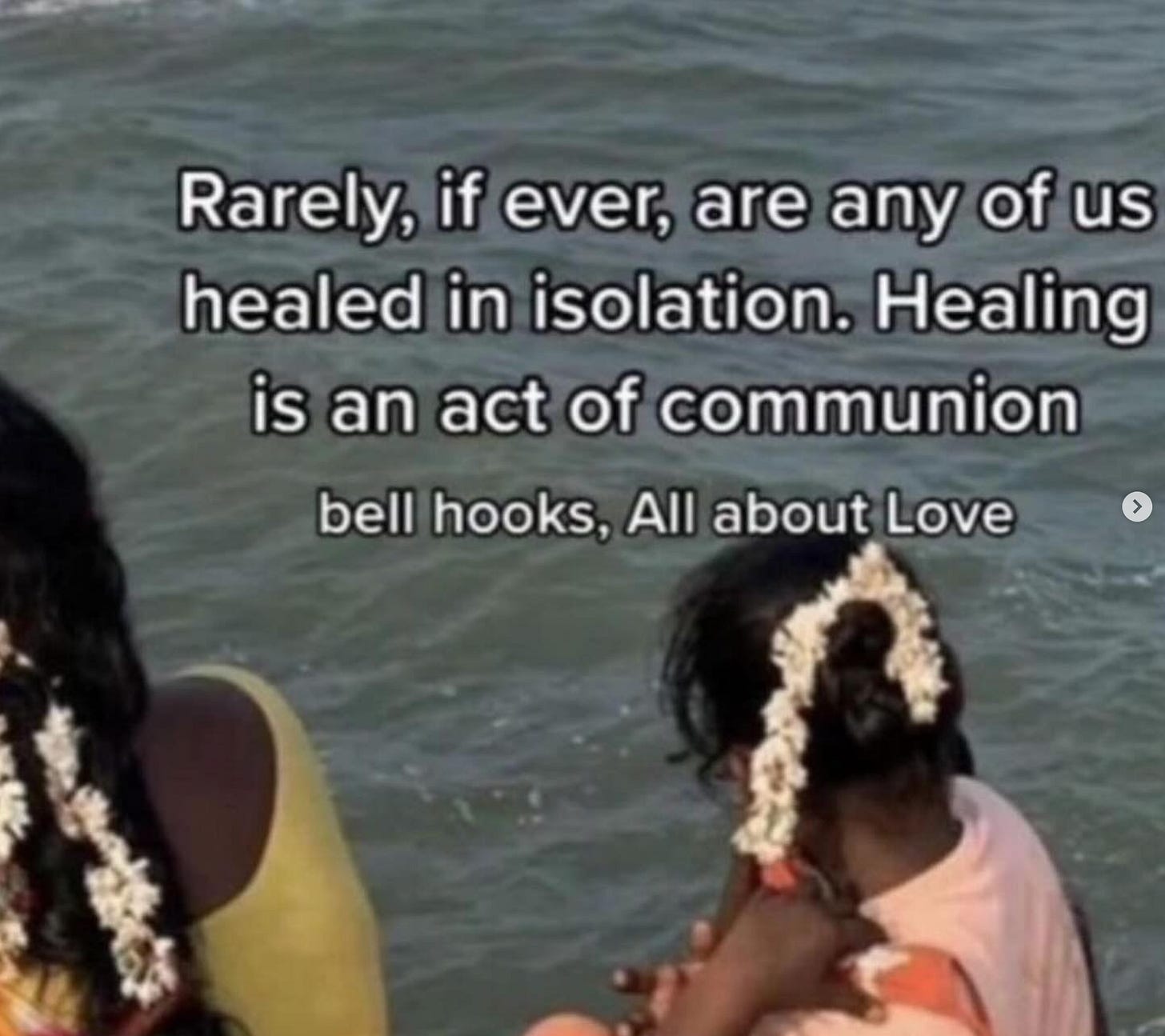As a researcher and artist delving into ancestral records, I’ve unearthed layers of trauma, blocked emotions, and unspoken truths—both within myself and my family. I’m the pot-stirrer, the one who asks uncomfortable questions that reveal hidden truths and spark necessary reckonings. In a family of immigrants and Black Southerners, certain unspoken agreements shape our interactions. These silent rules remind us to leave certain questions unasked—shadowed experiences tucked away where the sun doesn’t shine. Over time, I’ve conditioned myself to ask once, sensing the agitation or clipped responses that steer the conversation back to safer ground.
"As we uncover the layers of our ancestral past, how do we begin to heal the wounds they reveal?”
Stirring the Shadows: Confronting Family Histories
Uncovering a cultural and genealogical archive demands both asking uncomfortable questions and preparing for difficult truths. Today, shadow work is often aestheticized, but true shadow work is messy, chaotic, physically uncomfortable, and deeply personal. In my journey of not relegating ancestral work to only my life practice but also integrating ancestral work into my creative work, I have come to understand that real ancestral work is shadow work. The kind of shadow work that feels like wading through the sticky, viscous muck encoded in our DNA. The lessons and messages your great-great-grandmother never had the chance to address because her life was consumed by survival—by the relentless task of feeding her family and being simultaneously a rock and a soft place for everyone to lay their heads on, except her own.
In my creative practice, ancestral work has often guided my projects. My most recent exhibition, Old Suns, delved into my maternal grandmother’s history, the land she inherited in Jamaica, and my childhood memories of her—memories entwined with the painful recollection of her battle with Alzheimer’s. The work was daunting, but I felt that it had to be done. In many ways, it had been pulling at me to acknowledge this part of her history, because it was so burned into my mind as it related to my experience of her, as she lived with us growing up and was the caretaker of me and my sister while our parents were away at work. the exhibition became a way for me to to confront a fear I had held onto and still do of not only one’s memory abandoning them, but also in my grandmother’s case, her voice and ability to communicate. This fear echoes now as I engage with my aunt, who, despite dealing with dementia, remains sharp and witty. At 90, she sings Jamaican hymns with a steadfast spirit that brings clarity and gratitude to our connection.
Opening the Portal
I see the inception of my journey into ancestral work, beginning almost fifteen years ago when I was introduced to Ifa. The first time I sat across from Baba, he asked for my name and the names of my lineage. The voices etched in chalk on the divining board opened a portal on the divining board. The portal had been opened. What unfolded in the days, weeks, and months afterward was profound—stories for another time, perhaps. To put it plainly, my ancestors were shaken up and had begun speaking to and through me directly, screaming, “Finally!! We have been whispering to you! What took you so long!?”
As the unfolding of my lineage has progressed a present sensation of returning to energy work has resurfaced. In the past, I have dabbled in holistic and energetic medicine, and desired to stop making art and let this work become my path. Before moving to Los Angeles for grad school, I had an existential calling urging me that instead of packing up to continue with art, I should take the path of uncertainty, but also a path that felt more aligned with my spirit’s calling. I hesitated, choosing LA over the uncertain but spiritually aligned path. The steady pull back to somatic work has resurfaced, and this time, I feel ready to follow it. Embracing this path honors my inner desires, but it’s also essential for ancestral research to be grounded in care and infused with practices of energetic healing.
“Ancestral work is shadow work”
Care in Ancestral Research
The work is heavy. It involves unlocking vaults of silenced voices, chronic pain, poverty, bigotry, sexism, and colonized thinking—layers of trauma etched into our expressions and mirrored in society’s deepest flaws. These truths, though painful, demand confrontation if we are to heal Once the wound has been exposed, what tools incantations, and salves are we using to dress the wound so that it doesn’t continue to fester within us and in turn, infect the people closest to us. Another reason I feel compelled to integrate somatic work into my research is to extend proper care to my family as we unearth the cellar of traumas and triumphs embedded within our shared histories together. Bringing up the past with family members often stirs deep-seated anxiety. These can be tied to issues we have not addressed with them directly, or we have not previously taken on this new position of interest or guide, so it feels unfamiliar to our loved ones. How are we preparing them and holding them while we do this work.? Once the wound has been exposed, what tools and salves do we use to ensure it heals rather than festers—infecting us and those closest to us?
On Crafting a Grassroots PhD
Embarking on a somatic-focused grassroots PhD feels both exciting and tender. It’s not just about diving deeper into research—it’s about redefining how I approach learning altogether. There’s a quiet liberation in stepping outside traditional structures, in trusting that I can chart my path, and in allowing the process itself to guide me.
Neema Githere’s concept of a grassroots MFA lit a spark for me. The agency of honoring your curiosities to pursue learning on your terms feels necessary. Since becoming a college professor, two years ago I’ve been thinking about what it means to build a pedagogy rooted in intuition, lived experience, and ancestral guidance. My grandmother and my aunt didn’t need degrees to hold profound wisdom, nor did they need classrooms to pass it down. This PhD feels like a way to honor that knowing, the knowledge that lives in the body, the land, and our stories.
This isn’t just an intellectual pursuit; it’s deeply personal. It’s about circling back to questions that have lingered for years and letting myself sit with both the answers and the uncertainties. It’s also about creating space for things often left out of formal academic spaces: somatic practices, ancestral work, and the healing power of the unseen. These are truths I’ve felt but haven’t always had the language or framework to fully explore within academia.
This process also feels like a reclamation of learning as something fluid, unstructured, and shaped by the sensations that resonate with me the most deeply. It’s not about ticking off boxes or chasing titles; it’s about making space for questions that don’t always have neat answers.
I know this path isn’t linear, which is the most liberating thing for me at this moment. There’s no roadmap, no external validation, just the quiet, steady pull of curiosity and trust that the work itself will unfold in its own time. It’s intimidating, but it’s also freeing. I’m giving myself permission to be both the student and the teacher, to embrace the messy and the sacred, and to let the process evolve as it needs to.
This grassroots research is an offering—to myself, to my lineage, and to the work that’s calling me. It’s a way of saying that this knowledge, this exploration, is worth it. Even if it’s just for me, that’s enough.
🌀 Offerings 🌀
🦋 What unspoken truths lie within your family history that, when explored, might lead you toward healing and growth? How do these truths shape your sense of self?
🦋 How might acts of care serve as a bridge between reflection and creativity in your practice? Can you think of specific ways to transform these moments into art, writing, or other forms of expression?
🦋 If you could sit with one ancestor today, what questions would you ask them, and why?
Love and light,
Iman






